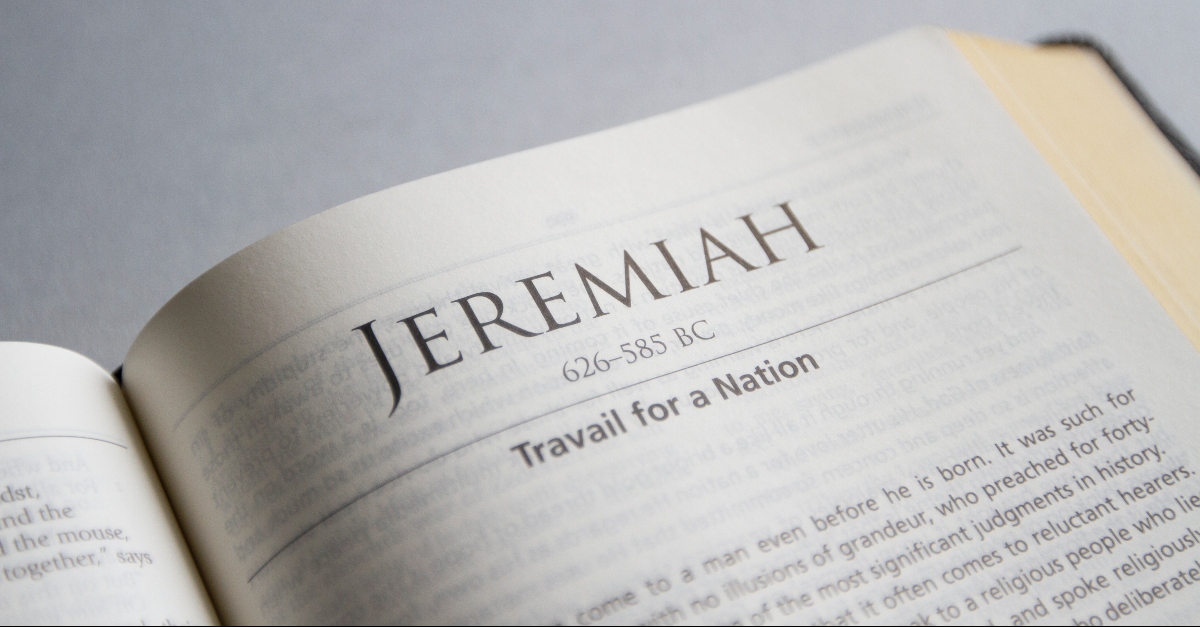What Christians Should Know about Shiloh in the Bible

If you ask most people about Shiloh, you’ll likely get blank stares. Some will point out Angelina Jolie’s child. Some will reference the actor Shiloh Fernandez. Others will reference the Civil War Battle in Tennessee. Music buffs might mention a Neil Diamond song. But Christians need to understand that Shiloh is a parable about our spiritual lives.
Shiloh is a person, place, and a promise with Biblical roots. It has significant Biblical history that has gone largely unnoticed for hundreds of years until recently because people in Israel are divided between preserving history and paving a road over the location. Why is this important and what should Christians know about Shiloh in the Bible?
What Is the History and Meaning of the Word Shiloh?
The word Shiloh is used 32 times in the Old Testament to refer to a location—a city and one other time to refer to the Messiah. The first mention of Shiloh is found in Genesis 49:10 as Jacob is giving blessings to each of his sons. When he blesses Judah on his deathbed he says: “The scepter shall not depart from Judah, nor the ruler’s staff from between his feet, until Shiloh comes, and to him shall be the obedience of the peoples.” Here, Jacob is referring to a person—the person who would bring peace and tranquility.
Shiloh as a Promise
Here, the name Shiloh would have derived from shālâ, “to be at ease,” and would mean something like “the peace-giver.” However, a great linguistic debate continues to this day about the precise meaning as others believe it may actually mean, “the rightful Messiah,” or “the Messiah of righteousness”. Ezekiel 21:27 echoes the meaning of Genesis 49:10 too. Those who read Genesis assumed that royal power belonged forever to the house of David which was the tribe of Judah—the tribe Jesus descended from.
Shiloh as a Person
Not only does Jacob give a blessing to his son Judah, but the blessing turns into a prophecy. As he continues to bless his son, he prophecies how the Messiah, the coming savior will come into power from this line and will continue to rule forever. This Ruler will then be honored by all nations and the scepter in this passage symbolizes that power. This passage ties into the New Testament as Jesus refers to Himself as, “Jesus Christ whom you have sent” (John 17:3). Romans 15:12 references this passage as a ruler who “arises to rule the Gentiles,” and the Apostle Paul also writes in Ephesians 2:14 that Christ, “Himself is our peace.” All three of these passages have roots in “Shiloh.”
Verse 10 is referenced in Isaiah 11:1, “the seed,” John 17:3, “the sent,” Ephesians 2:14, “the peaceable or prosperous one.” Prior to the coming of the Savoir, this blessing was a declaration to the other tribes that Judah would continue to lead in strength and power and be a symbol of authority. Even after the Israelites were captured and lived in captivity in Babylon, they continued to look back at these passages as promises for their future Messiah.
Shiloh as a Place
Not only was Shiloh a promise and a person—our mighty Savior, but it was also a place. When it was built, it was located a little northeast of the center of Ephraim.
In 12th-11th century BC, the Israelites built the Tabernacle and the Ark of the Covenant rested in the city of Shiloh. Here, it rested for three centuries where the tribes of Israel would visit for feasts or peace offerings. From the time Israel entered the land until the time of the prophet Samuel, the Ark of the Covenant remained in the Tabernacle at Shiloh. This was also the central location where the land was divided up into the 12 sections for the 12 tribes (found in Joshua 18). And this was the background for Hannah when she visited the tabernacle to pour out her heart to God, begging Him for a child—whom God gave her Samuel (1 Samuel 1:1-28; 3:21).
When we first meet Hannah, we know she’s barren and wept bitterly for a child. So much so, the Priest Eli thinks she’s drunk. But God hears her prayers and helps her birth one of the greatest men in the Bible, Samuel.
She takes her son back to the tabernacle once he’s weaned because she promised to dedicate his life to God. At the time, Eli’s own sons were wicked and didn’t fulfill their duties nor did they honor God. But as the story goes, the hearts of God’s people grew cold too. They turned their backs on God and after many warnings, God handed them over to the Philistines. After several warnings from the Lord to turn back to Him, the Ark was then captured by the Philistines and God left His dwelling place, “He abandoned the dwelling place at Shiloh, the tent which He had pitched among men, and gave up His strength to captivity and His glory into the hand of the adversary,” Psalm 78:60-61. The Ark was captured, and the city was destroyed (1 Samuel 4:10-11).
Centuries later, the Prophet Jeremiah directs the attention of God’s people back to the city because the people have a new temple. A temple so grand, they put their faith and security in Solomon’s grand temple—not their mighty God. So, Jeremiah gives them a warning, “Go now to My place which was in Shiloh . . . and see what I did to it,” (Jeremiah 7:12) But God’s people refuse to listen and twenty years later, the Babylonian’s destroyed Solomon’s temple.

What Important Things Should Christians Know About Shiloh?
That was a lot of history about one little word woven throughout the Old and New Testament. But, as we look back at the promise, the person, and the place of Shiloh—the theme of God’s love and sovereignty begins to emerge from the rubble. Shiloh is a reflection of our sinful nature, being surrounded by enemies, gathering as a church, and needing a savior. Here’s what we need to keep in mind as followers of Christ:
1. God provided promises and a parable through Shiloh.
2. God dwelled among the His people in the Holy of Holies in the Tabernacle of Shiloh.
3. Only Priests could go into the Holy of holies during certain times of the year.
4. All were required to atone for their sins via sacrifice.
5. The tabernacle was like a modern-day church. It was the center of living.
6. Hannah dedicated her son to the Lord.
7. Samuel was a little child, weaned, dead with Christ, and presented to the Lord where he learned to listen for the voice of the Lord.
8. The people continued to fall away from God so God left the Tabernacle.
9. It was captured by the enemies & the tabernacle was destroyed.
10. Later, a new grander temple was built by King Solomon. Once again people were placing their security in a building.
11. The Prophet Jeremiah points out what happened to Shiloh, later so does Christ.

Shiloh is a representation of what happens when we choose to put our sense of security in a building. It also reveals how time and again, God’s people faded away from total devotion to lukewarm hearts to total corruption. Instead of heeding God’s Word, they would fall prey to their enemies only to become enslaved to their masters.
But God’s promise to the tribe of Judah still echoed through the centuries, promising a temple that could never be destroyed, the true Shiloh but not through stone, brick or mortar but through Christ. Jesus (Jeremiah 7:1-15; 26:6; Mark 11:15-17; Luke 21:6) declared a new temple will be built. Jesus showed the people that our security would not come from the Tabernacle in Shiloh or Jerusalem but through Christ himself.
Today, God’s temple is His Church, living in the hearts of each of us (1 Corinthians 3:16; 6:19) and He will never remove His spirit from us. We have the responsibility to obey His Word and to live lives that reflect what it means to be a follower of Christ. May we as the temples of Christ remain a vessel through which His glory can shine through us.
Photo Credit: ©SparrowStock

This article is part of our larger resource library of theology terms and questions important to the Christian faith. From heaven and hell, to communion and baptism, we want to provide easy to read and understand articles that answer your questions about theological terms and their meaning.
What Is Blasphemy and Why Is it So Deadly?
What Is Heresy?
Heaven - What Is it like and Where Is it?
Hell - 10 Things You Should Know
What Is Atonement & Why Is it Necessary?
Predestination - Biblical Support & Facts
The Trinity - Father, Son, Holy Spirit Explained
What Is Salvation?
The Holy Spirit
What is Sin?
Originally published April 21, 2021.







